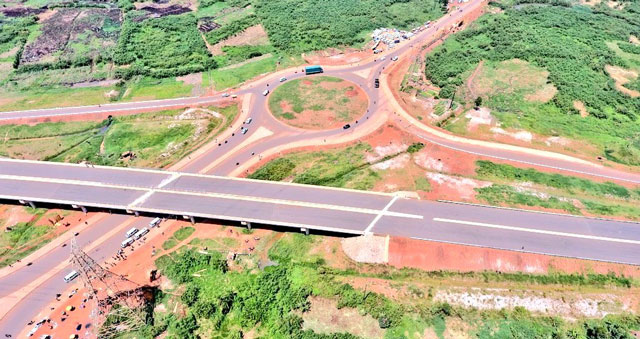
Kampala, Uganda | THE INDEPENDENT | The debate on the high cost of public infrastructure projects in Uganda compared to the rest of the region and international averages continues pitting the public, civil society, and politicians against the government. Deputy Speaker of Parliament, Thomas Tayebwa has tasked the engineering fraternity in Uganda to explain why the cost of construction in Uganda is said to be higher than in the neighboring countries.
According to him, Uganda’s roads are three times more expensive than in Kenya and Rwanda. He proposed that the government and the Institute of Professional Engineers (UIPE) push for a regional construction standards platform that would help harmonize standards, and costs and enable sharing amongst the countries.
He was speaking at the 26th National Technology Conference and Exhibition in Kampala under the theme: Tapping Engineering Opportunities for Accelerated African Continental Free Trade Area (AfCFTA) Implementation. The debate was ignited in 2018 at the commissioning of the 51-kilometer Entebbe Expressway which was budgeted to cost 476 million dollars, translating to about 9.3 million dollars or 34 billion shillings per kilometer.
In comparison, Kenya’s 50-km Thika Super Highway cost about 360 million dollars equivalent to 7 million or 26 billion Uganda Shillings.
The Minister for Works and Transport, Edward Katumba Wamala said the cost variations are a result of variations in factors like terrain, acquisition laws, access to materials, and logistics, especially regarding imported materials, among others. He says even the delays by the government to pay contractors increase the costs.
On average, a kilometer in Uganda costs 3 billion Uganda Shillings to construct, and 1 billion in Kenya, according to records on the industry. Construction of a four-lane road costs between 1.1 and 1.3 million dollars per kilometer in India, 1.3 to 1.6 million in China, and 2.5 to 3.5 million dollars in Europe, making the costs in Uganda relatively competitive.
The engineers continued to push the government for more affirmative action that will ensure that more and more government projects are awarded to local companies. Engineer Andrew Muhwezi, the President of UIPE Urged the government parliament to expedite the enactment of the Local Content and the Engineering Professionals Bill which he hopes will enhance standards in the profession and the industry as well as protect local contractors.
MP Tayebwa assured the engineers that while the Engineering Professionals Bill is with the cabinet awaiting a Certificate of Financial Implications, the Local Content Bill will become law next week because the president has returned it twice. In the third reading, he says it will be passed into law.
On the support to local contractors for government infrastructure programs, General Wamala admitted that there was adequate professional personnel to do the job.
However, according to him, the informal type of business operations by the engineers makes it hard for them to build the capacity to take on big projects. He urged them to collaborate and unite to build bigger companies and the government would support them through the local content policies.
The Chairman of the Institute, Isaac Mutenyo said that currently there are about 250,000 people in the engineering occupation, the majority of whom are not qualified. According to the institute, there are only about 25,000 qualified engineers in the country, while others are technicians and certificate holders as well as others with no qualifications. Mutenyo says the regulations need to take care of all the people involved in the industry at all levels so as to give a good account of the trillions of shillings that the industry takes every budget year.
On the theme of the conference, UIPE President, Engineer Muhwezi said they have to examine what in the continental trade agreement concerns the engineering profession and how they can play their role. Muhwezi explained, for example, that adequate infrastructure facilities to enable the free movement of goods are the responsibility of the engineers to implement, adding that currently, connectivity is the main challenge to trade. He said they have to also ensure that whatever infrastructure project is implemented is in line with the Net Zero Carbon Emission targets.
*****
URN
 The Independent Uganda: You get the Truth we Pay the Price
The Independent Uganda: You get the Truth we Pay the Price



